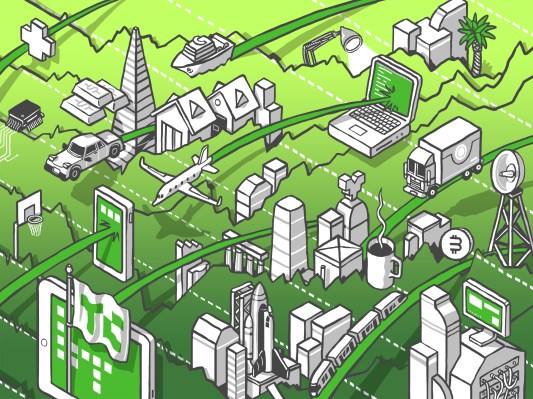It must be slightly intoxicating to be able to move markets. Imagine if your latest purchase of a stock or token sent the value of that security soaring simply because it became known that you made the trade.
Such is the case with Elon Musk and Twitter. As TechCrunch reported this morning, the well-known technology entrepreneur “has taken a 9.2% share of the company, working out to around $2.9 billion based on Friday’s share price.” In response to Musk’s disclosure that he had purchased so much of the U.S. social network, shares of Twitter are up 24.6% as I write to you this morning.
The Exchange explores startups, markets and money.
Read it every morning on TechCrunch+ or get The Exchange newsletter every Saturday.
For Twitter, the Musk purchase is providing it with billions of dollars in new market cap, meaning that the social company is at once harder to take over and more able to execute M&A given that it has more value to throw around. Hell, the share-price bump, should it persist, is effectively a raise for Twitter’s staff, perhaps limiting human churn amid a tight labor market.
 Unless Musk gets wild with his Twitter stake, he just gave the company a pretty nice gift.
Unless Musk gets wild with his Twitter stake, he just gave the company a pretty nice gift.
But folks rarely drop a few billion dollars for fun — Musk likely has a set of goals in mind for his nearly 10% stake in Twitter. But at least he didn’t decide to build his own vanity social network.
Taking Twitter on
Apart from TikTok, the field of new social networks feels somewhat thin. And those that have clawed their way to market share have generally done so by taking a new tack on digital human interaction over a rehash of what worked before. TikTok made it by focusing on short-form videos and music, just as Twitter blew up with micro-posts. Instagram had a good idea with feeds of images. You get the idea.
Rare is the copycat success, at least in recent years, especially among startups looking to ape a winning model. A good example of that fact is the regular attempts to replace Twitter. Remember Mastodon? Probably not. More recently, have you used Gettr, Truth Social, or Parler or Gab? Probably not. And yet there are a host of companies trying to replicate Twitter’s magic.
Musk had mused in March about a new social network after posting some unlearned criticisms of how Twitter is managing its own service. But instead of buying something smaller, or building something new, Musk bought Twitter stock. What now?
A few guesses, for fun:
- More Twitter integration in Teslas?
- Twitter-branded SpaceX rockets?
- SolarCity installs atop Twitter HQ?
- Dogecoin integration to Twitter tipping?
- Send 1,000,000 tweets, get free trip to space?
- Twitter Mars HQ?
I jest, but it’s honestly a little bit hard to grok what Musk wants to do with Twitter. Perhaps he can agitate for it to moderate its platform less? That would be a net negative for the social network, which has dealt with harassment, spam and external manipulation during its life. These are table stakes for major social networks, but hurdles all the same — removing guardrails won’t really help the service thrive, even if it might prove to be an ego boost for Musk.
At least the jokes from the situation are medium-good. Tony Haile — former CEO of Scroll, which sold to Twitter, and current “longform” product person at the social network — had this to say:
A solid 7/10, I think.
What’s somewhat amusing about the entire Musk-Twitter situation is that it’s been incredibly profitable for both parties. As noted up top, a rising share price is generally good for a public company, helping it across a number of vectors. But Elon also spent nearly $3 billion and, just for doing so, is going to make around $600 million on the trade this morning in paper terms provided that Twitter holds onto its gains.
That’s not a bad result for doing very little work. Musk, truly, has already won from his move.
It would be more 5D-chess to sell his Twitter stake and plow the profits into Musk’s Happy Social Corner (or whatever), but that would be simply a good way to waste a half-billion dollars or more.
The Musk-Twitter saga is a reminder that tech can still be silly and fun. But I have to admit that I liked it more when the silly and fun came more from early-stage founders than late-stage billionaires.
